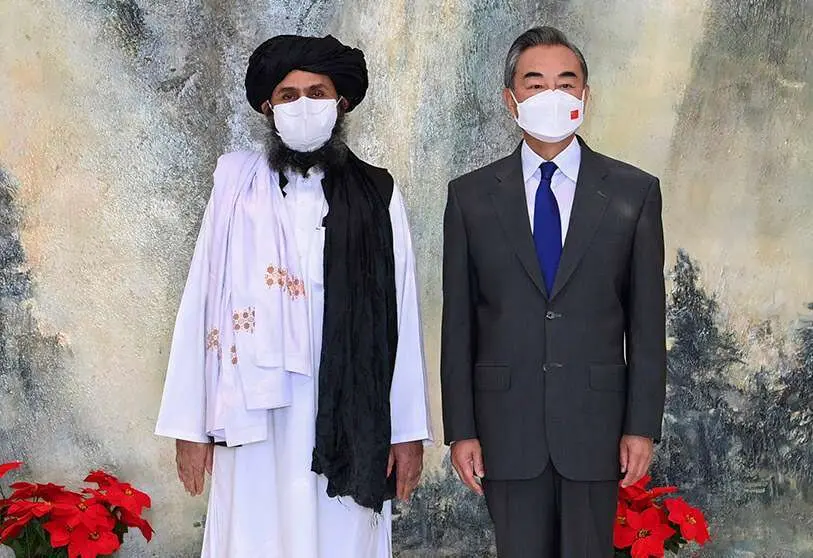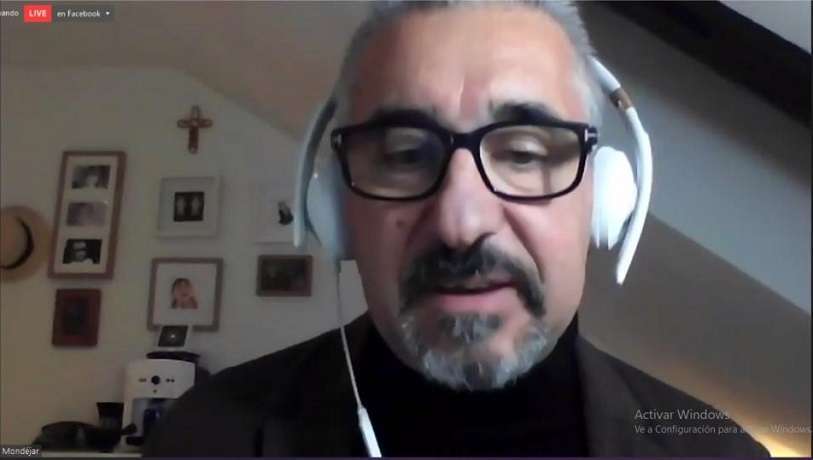China and Afghanistan, neither friends, nor enemies, nor quite the opposite

The future situation in Afghanistan after the departure of Western powers and the Taliban takeover is an important question affecting the shape of the Middle East and Near Asia. It is one of the main issues addressed in the online seminar organised by 4Asia magazine, moderated and conducted by the magazine's editor, Julio Trujillo.
Recent events in the Asian country and possible future scenarios were analysed by a large panel of experts, including Spanish Army Infantry Colonel Óscar Ruben Sánchez Artiles, former military attaché at the Spanish Embassy in Beijing and an expert in Asian geostrategic affairs, as well as field experience in Afghanistan. Fernando Arancón Ruiz, director of the digital publication 'El Nuevo Orden Mundial'. Atalayar journalist Santiago Mondéjar, an expert in international relations, and Said Hamed Wahdat Ahmazadam, a former Afghan diplomat posted to the Embassy in Madrid. PhD in Law, Government and Public Policy.

Among the first issues to be addressed was the Taliban's control over a country as complex as Afghanistan. The panel agreed that the new government still has a long way to go, and it remains to be seen whether it will be able to go all the way, to take de facto control of the country. The Taliban are currently surrounded by a number of countries, formerly part of the USSR, which are adjacent to their borders and in some cases hostile to the new government, and which provide resources and support to anti-Taliban insurgent movements. This was recently the case in Tajikistan, which welcomed the Panjshir Valley rebels with honours after their defeat in northern Afghanistan.
"It is very difficult to control a country like Afghanistan because of its configuration, not only geographically, but also because of its tribal organisation, with many different small groups. A good example was the previous regime, during which the president of Afghanistan was called the 'mayor of Kabul'," said Oscar Sánchez Artiles, summing up the challenge now facing the Taliban.

The roundtable also addressed the new international influences of actors in the Asian region on Afghanistan, starting with clarifying the recognition of the new Taliban government. "Having dialogue with the new government, for practical reasons, does not mean the same as fully recognising a new government", clarified journalist Santiago Mondéjar, referring to the relations that the Taliban are having with other countries, among which Pakistan stands out as the one that has made the most concessions of authority to the Taliban. "Pakistan is one of the best off with this change of power in Afghanistan and will try to make the most of this situation to annoy India, but there are contradictory internal dynamics in Afghanistan, and it is still too early to make a correct diagnosis," the journalist continued. Pakistan is already reportedly cashing in on the new government in Kabul, and for the first time in a long time Islamabad has opened trade caravans across Afghanistan to Turkmenistan.

On the other hand, looking at China, it was clear from the panel's interventions that the Asian giant led by Xi Jinping would not make the same mistakes as the West in Afghanistan. According to the panel, China's main interest is to create a favourable environment around Pakistan and in the region. China's interests are indirect, and as Fernando Arancon reminded us, it does not even have an interest in Afghanistan's mineral wealth, as China itself already has the same resources on its own soil. One thing that became clear is that China is clearly not interested in entering Afghanistan and getting militarily embroiled in the region. "They will buy, they will pay, they will use secret services, but they will not go in militarily. China's power is like that, it is economic, but it does not export force or military action," the colonel stressed.

China's military power, and its progressive rearmament, has always been approached from the point of view of defence, and never as a long-range arm at the international level, unlike its rival power, the United States. The second part of the seminar focused more on China and its struggle with the US over the 'rebel island' of Taiwan. In the same week, leader Xi Jinping held a three-hour telematic meeting with President Biden, after which tensions were significantly lowered. Even earlier, an EU delegation visited the island of Taiwan for the first time, which increased instability.
The panel of experts agreed that in this matter, the United States does not have the military expertise in the Pacific to stop a hypothetical Chinese invasion of the island of Taiwan, and they do not envisage the involvement of Korea and Japan on the American side in this possible scenario, although it is not close to happening either.
The seminar closed with the curious paradox of China's case and its evolution through history. At first a tacit ally of the USSR, it grew, according to experts, with the help of the United States, and repeated visits by Secretary of State Kissinger, or later Nixon, which did much to integrate China into global trade. However, it is now a connection, which would have reversed roles, between the United States and Russia, which is trying to contain the growth of this new power, which has only seen its economy decline in recent years.










